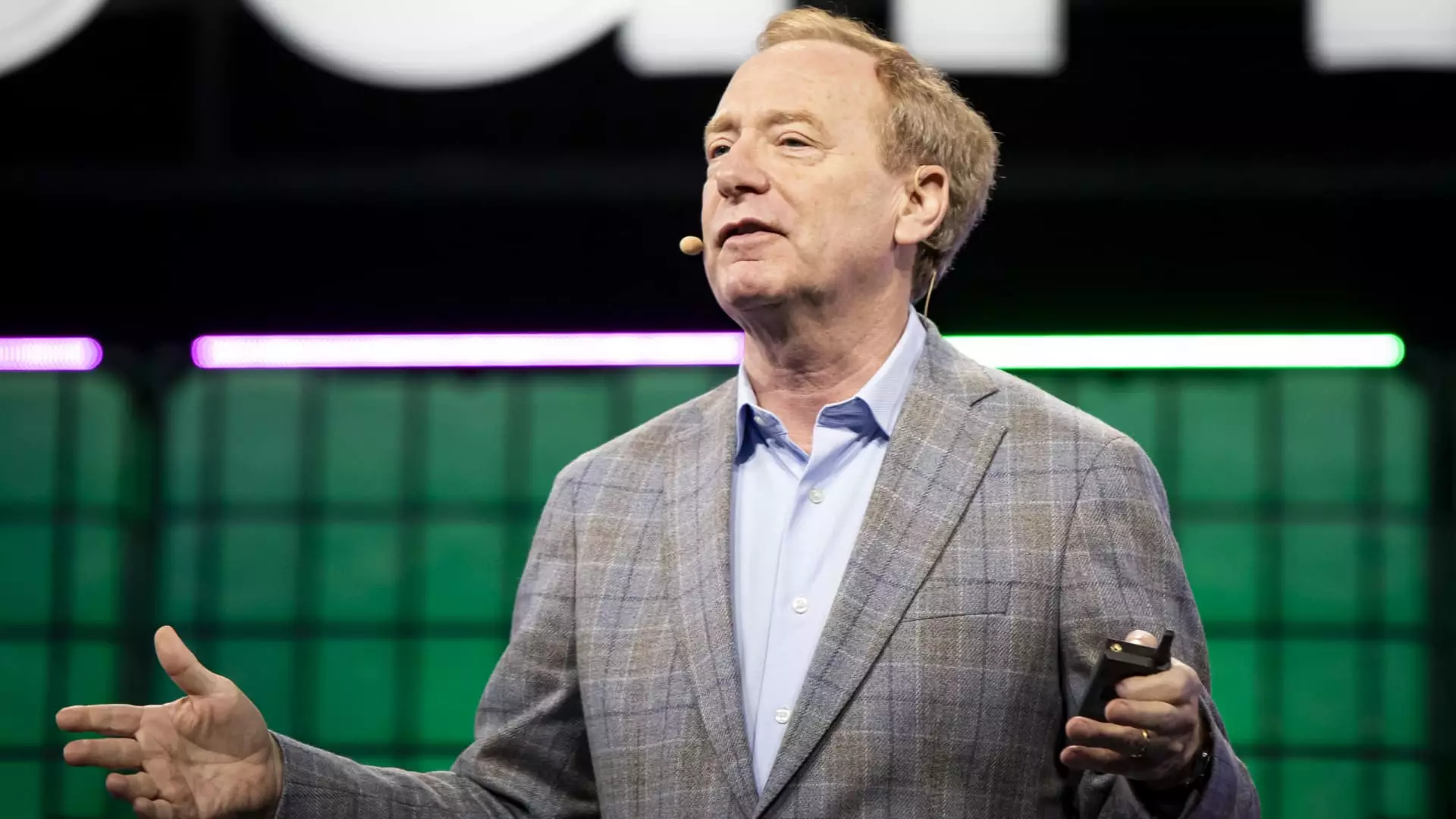In a recent announcement, Microsoft outlined an ambitious plan to allocate an astonishing $80 billion for the development of data centers specifically designed to support artificial intelligence (AI) workloads in fiscal 2025. This move underscores the company’s commitment to maintaining its position as a leader in the rapidly evolving AI landscape. According to Microsoft Vice Chair and President Brad Smith, more than half of this substantial investment will be directed towards projects within the United States, emphasizing the country’s central role in the ongoing global AI race.
Smith articulated the current state of the AI industry, stating that the U.S. is at the forefront thanks to the infusion of private capital and the innovative efforts of companies ranging from nimble startups to established giants. Microsoft’s partnership with OpenAI and other emerging tech firms illustrates a collaborative approach that fuels advancements in AI. The race to integrate generative AI capabilities has intensified, particularly following the widespread adoption of OpenAI’s ChatGPT. This technological swell has compelled leading tech players like Microsoft to pivot and invest in robust infrastructure to harness the potential of AI fully.
Microsoft’s ongoing financial commitments are evident in its recent capital expenditures. The company reported spending $20 billion in the first quarter of its fiscal 2025, which includes $14.9 billion dedicated to property and equipment. Projections from analysts anticipate that these investments will escalate, with estimates suggesting a 42% growth in additional property and equipment spending for the fiscal year. The increasing revenue from Azure and other cloud services, reported to have risen by a remarkable 33%, with AI services alone accounting for a 12 percentage point boost, further validates the strategic direction Microsoft is pursuing.
As the competition heats up internationally, with nations like China making significant strides to bolster their AI infrastructure, Smith’s call to action for U.S. policymakers is both timely and crucial. He expressed a strong need for the incoming administration to nurture and protect America’s leadership in AI through actionable strategies such as education initiatives and promoting American AI technologies on a global scale. The concern over China offering subsidized technology access to developing countries continues to pose a challenge, highlighting the necessity of a proactive stance to ensure that the U.S. remains a pivotal player in the AI domain.
Adapting to an ever-changing technological environment requires not only financial investments but also an integrated strategy that fosters innovation and collaboration. Microsoft’s substantial commitment to AI infrastructure serves as a critical investment in its future and the broader technological landscape. As the firm navigates these waters, its continuous efforts to outpace competitors and drive advancements within the field will shape the future trajectory of artificial intelligence, positioning Microsoft as not merely a participant in the race but as a frontrunner leading the charge. The call to arms from Smith underlines the urgency and importance of collective efforts to secure a dominant position in the global AI framework.

